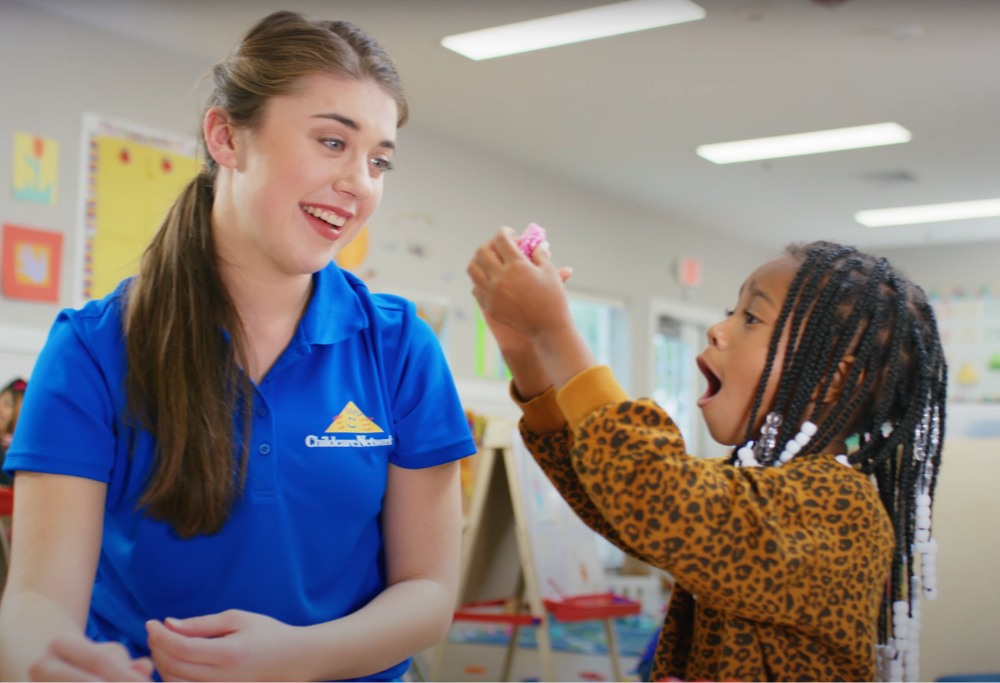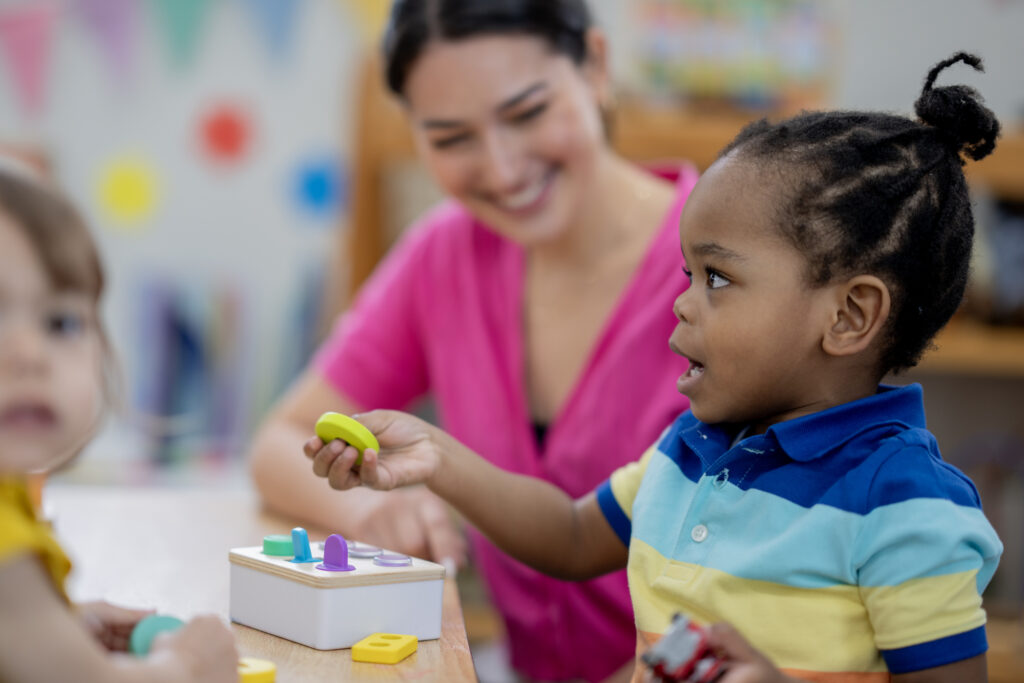Imagine a learning environment where your child’s curiosity leads the way, and they can explore, create, and discover through hands-on experiences that feel more like fun than school. This is the essence of play-based learning—a dynamic approach that turns the classroom into an exciting adventure. At Childcare Network, we believe play is the key to unlocking your child’s full potential, offering them a joyful and effective way to learn, grow, and thrive in their early years.
Why Play Matters in Early Childhood Education
Did you know that play is one of the best ways for young children to learn? Studies show that kids not only enjoy learning through play but also remember what they’ve learned better when actively involved in playful activities. Play isn’t just fun; it’s a powerful tool for developing thinking, social, and emotional skills.
Research based on the works of Jean Piaget and Lev Vygotsky showed that play helps children explore, experiment, and build knowledge. Piaget believed that play allows kids to learn about the world, while Vygotsky emphasized the importance of social interactions during play. Modern research supports these ideas, showing that play-based learning helps children develop creativity, problem-solving skills, language, and social-emotional growth.
The American Academy of Pediatrics (AAP) also highlights that play boosts brain function, supports healthy development, and builds resilience. When children play, they are more engaged and excited about learning, leading to better mastery of new skills and ideas.
Play-based learning isn’t just beneficial—it’s essential for young children’s development. It encourages them to explore the world around them, make sense of new experiences, and develop critical skills that will serve them for a lifetime.
The Childcare Network Approach with HighReach Learning
At Childcare Network, we believe in the power of play. Our proprietary curriculum, HighReach Learning, is built on the foundation of learning through play. We know that children learn best when actively involved in experiences that matter to them. Our curriculum is carefully crafted to meet each child’s developmental needs through rich, play-based learning opportunities.
In our classrooms, play isn’t just a break from learning—it is learning. Whether it’s creating a culinary masterpiece in dramatic play, constructing architectural wonders with blocks, or mastering phonetic awareness in the library, our educators craft environments where children can explore, experiment, and discover. This approach helps children develop academic skills and supports their social and emotional growth, setting them up for future success.

Bringing play-based learning home
As parents, you play a crucial role in your child’s development, and you can easily incorporate play-based learning into your daily routines. Here are a few simple ways to engage in meaningful play with your child at home:
-
- Imaginative Play: Encourage your child to use their imagination by playing pretend games. Set up a pretend store, doctor’s office, or restaurant at home. This kind of role-playing helps children develop language skills, social understanding, and problem-solving abilities.
-
- Building and Construction: Provide your child with blocks, Legos, or other building materials. Ask them to build a tower, a house, or anything they can imagine. Building promotes spatial awareness, fine motor skills, and creativity.
-
- Outdoor Exploration: Spend time outside exploring nature together. Go on a nature walk, collect leaves, or observe insects. Outdoor play helps children connect to the natural world and supports physical development.
-
- Art and Creativity: Offer your child simple art supplies like crayons, markers, and paper, and let them create. Art allows children to express themselves and develop fine motor skills and creativity.
-
- Board Games and Puzzles: Play age-appropriate board games and puzzles together. These activities help children develop patience, turn-taking, and strategic thinking.
Experience a Play-Based Learning Early Education Center
Choosing a play-based approach to learning is one of the best decisions you can make for your child’s early education. At Childcare Network, we are proud to offer a curriculum that embraces the power of play, helping children grow, learn, and thrive in a nurturing environment. We invite you to visit one of our schools to see how play-based learning can make a difference in your child’s life. Together, we can help your child build a strong foundation for lifelong learning and success. Search for a Childcare Network near you to invest in your child’s growth through play.



